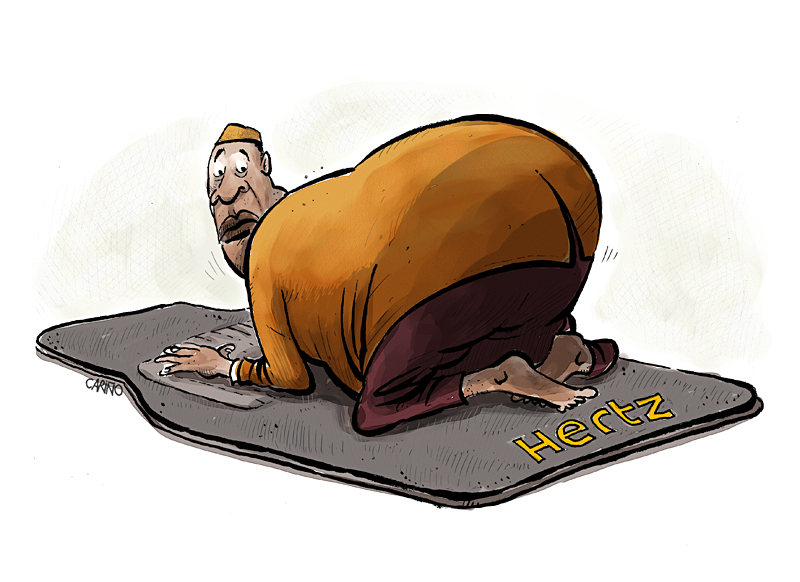For years, Hertz Rent-a-Car has employed dozens of Muslim workers to shuttle its vehicles back and forth between Sea-Tac Airport and its nearby corporate office. The workers, mostly Somali immigrants, earn relatively low pay—about $10 an hour and no benefits—but insist on one thing: two to three prayer breaks per day.
Recently, Hertz’s managers warned employees that if they wanted to continue bowing to the East, they’d have to clock out first. Many refused. So last Friday, the company indefinitely suspended 35 drivers, leading to protests and an official complaint with the National Labor Relations Board.
Hertz says it’s simply trying to keep its employees focused. According to spokesperson Rich Broome, the car-rental company was concerned the prayer breaks would “get out of hand,” portraying the goof-off potential as serious. “We didn’t want a situation where a 10- or 12-minute prayer turned into a 40-minute break,” he says.
But Tracy Thompson, secretary and treasurer of Teamsters Local 117, which picketed at Sea-Tac in solidarity with the drivers, sees things differently. “I don’t know what conclusion to draw except that this is based on religious discrimination,” she says.
It’s a strange dispute because it’s not exactly about money. Workers get paid even when they’re clocked out—unless they go over their allotted time—and to have the privilege of praying, all drivers forgo the twice-daily 10-minute breaks. Instead, for Hertz, the crackdown seems to be about making sure that workers don’t get a minute more of break time than they’re entitled to. (Note to bosses in low-wage industries: This is why your employees hate you.)
According to Thompson, the contested prayer sessions took place on a rug behind a barrier in the garage where Hertz keeps its cars. She says the union has timed the prayers, and they take four to five minutes. (Broome insists they’re longer.)
Thompson says Hertz has long accepted this practice. And last year, she says, the company verbally agreed during negotiations that workers would not clock out for prayer breaks, even though all employees are required to punch in and out for regular breaks and meal times.
Broome denies such an agreement, and the written language of the contract, forwarded to Seattle Weekly by the union, doesn’t specifically address whether workers have to clock out for “mini breaks,” as prayer times are categorized. The Hertz spokesperson insists that the clocking-out rule was clear. Therefore the company recently decided it had to crack down on those who were “insubordinate.”
Workers don’t want to clock out despite being paid because, according to Thompson, they don’t want to feel “monitored” during their religious rituals. Yet they are anyway, the employees claim. The union relates one incident in which a manager attempted to block a group of Somali women from their ad hoc prayer room.
“He stood in front of the prayer room with his arms fully extended,” says employee Maryan Muse. “We managed to get into the prayer room, but while we were praying, they [Hertz management] were laughing and clapping their hands, mocking us.”
Broome says he has never heard of any such incidents. As for the suspended workers, he says they won’t be taken back “until they agree to follow the rules.”








